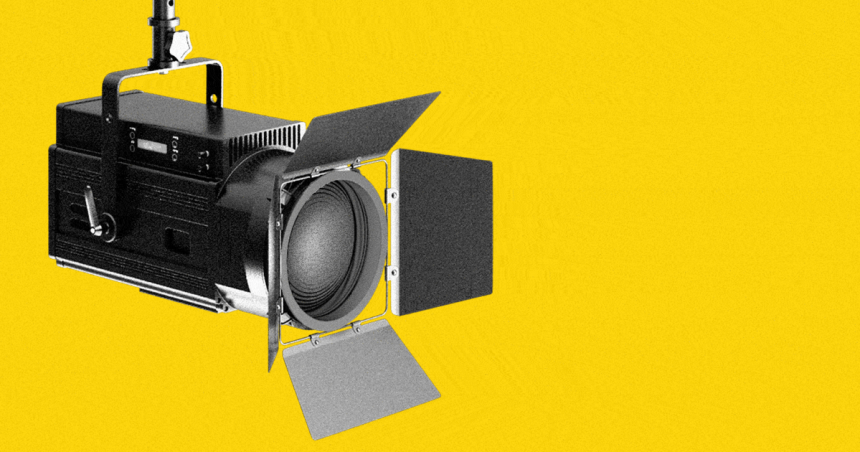Ahead of the debut of Winning Time’s debut season in 2022, stars of the HBO series made sure there was no missing it. John C. Reilly, who plays former Los Angeles Lakers owner Jerry Buss in the show, made appearances on The Late Show with Stephen Colbert and Good Morning America, while Quincy Isaiah showed up everywhere from GQ to The Tamron Hall Show, part of a promotional blitz to get viewers tuned in.
It looked a little different this summer for the series’ sophomore season. The ongoing writers’ strike meant there were no late-night shows for cast members to appear on—not that they could have, anyway, due to the actors’ strike that began in July. Cast interviews that did run in places like GMA, E!, and Variety all contained disclaimers indicating that conversations were conducted ahead of the work stoppage.
It’s a familiar tune across Hollywood. The ongoing writers’ and actors’ strikes, which prohibit marketing work for struck companies, have temporarily erased the celebrity power of promotion ahead of the fall TV season, awards season, and a bustling fall movie release schedule. As Paramount CEO Bob Bakish recently acknowledged, “strikes do present some marketing challenges.”
With no end to the strikes in sight, some marketing departments are relying on influencers, experiential events, and even word-of-mouth to help fill the gap. But those routes have their own complications, experts told Marketing Brew, and there are risks that any kind of promotion could inadvertently bring attention not to the programming itself, but to workers’ demands.
“There’s a lot of questions going around in marketing departments right now about how you launch a big show without it becoming entirely wrapped up in the labor dispute,” Fred Black, principal analyst at Ampere Analysis, told us.
No-show
Press junkets and premieres aren’t the only things that get TV shows watched and movie tickets sold, but they’re an important element of the Hollywood marketing mix, Paul Dergarabedian, a senior media analyst at Comscore, explained. Studios already know what happens when star power is subtracted from the equation: In the case of new film releases, a dearth of celebrity promotion could cost around 10%–15% of total box office revenues, according to one estimate.
Consider the case of this summer’s superhero film The Flash, whose star Ezra Miller remained largely out of the spotlight in the lead-up to its premiere following a host of controversies and legal troubles. Warner Bros. reportedly spent big on alternative marketing efforts—and the film was still a historic box-office bomb.
“When any part of that cog in the wheel or that gear is missing, it definitely slows things down,” Dergarabedian said.
To help grease the wheels, studios may opt to buy ads—but that can be costlier than ginning up press or getting eyeballs from a well-timed Instagram post from a lead actor. Without stars promoting their work, “you’re having to pay a lot more to get that cultural imprint [and] those marketing impressions,” Dergarabedian said.
Instead, there’s an opportunity for influencers to step in to help get new shows and movies off the ground. “There’s a lot of wannabe MrBeasts who are [thinking] this will be their opportunity to get on TV and reach millions of people,” Dave Morgan, CEO of the TV ad platform Simulmedia, said.
Looking for influence
Since the strikes began, creator management platform Grin has seen an increase in the amount of traffic in and out of its platform as studios and streamers increase their budgets on influencer and creator content, Ali Fazal, Grin’s VP of marketing, said. That only stands to intensify as fall releases ramp up, he said.
Get marketing news you’ll actually want to read
The email newsletter guaranteed to bring you the latest stories shaping the marketing and advertising world, like only the Brew can.
“A lot of the studios are scrambling to make sure they have promotion plans in place for all the new shows premiering in the fall, so I think we’re only going to see an increase in [influencer marketing] in the months to come,” Fazal said.
Influencer partnerships can work for everything from blockbusters to independent projects, he said, noting that efforts with creators can be seen as more organic, like a history-focused creator promoting an upcoming title that covers a similar subject matter.
Some streamers are shipping out promotional press boxes as a way to cut through the noise. For Hulu’s comedy series Only Murders in the Building, the Disney-owned streamer worked with star Selena Gomez’s beauty brand Rare Beauty to ship makeup in Only Murders packaging to influencers. Disney-owned FX also seems to be taking a similar route, sending promo boxes for shows like Justified: City Primeval to influencers, who have posted TikTok videos promoting the boxes and the show.
But not every creator is interested in, or even can, ink promotional deals with studios and streamers. Krishna Subramanian, co-founder and CEO of influencer marketing platform Captiv8, told us the majority of influencers it works with aren’t making those types of deals with studios and streamers.
Some influencers are SAG-AFTRA members as a result of previous work, even if they are not full-time actors, Subramanian said, while others are eyeing the strike rule that says working with struck companies could bar them from future union admittance. Comedian Darcy Michael reportedly turned down a $25,000 network deal in the days leading up to the strike, and TikToker Deanna Giulietti also reportedly turned down $28,000 to promote Only Murders because of her acting aspirations.
“Influencers really want to preserve their future career trajectory,” Subramanian said.
Mary Elizabeth Kelly, a SAG member with more than 1.1 million TikTok followers, said that prior to the strike, around one-third of her online brand deals came from studios and streamers like Paramount+ and HBO, but that since the strikes began, those deals have slowed.
Kelly worked with Hulu in April to promote Only Murders in the Building, but she said that to her knowledge, no streamer had reached out to her agent since the strikes started. Instead, she said she’s been working with other companies and relying on other forms of income, like commercial residuals.
“I’m getting fewer offers in general, because [the strike] does take them completely out of the running in terms of brand offers,” Kelly said, noting that it can be hard to tell which lost opportunities are due to the strike or due to strategic or budgetary changes. Despite the slowdown, she is committed to the strike.
“We have to be willing to go on for as long as we can [and] protect our jobs and the industry in general and our place in it,” she said.
Look, over here
With celebrities and some influencers out of the running, what’s a studio to do? Some are hoping they can get attention from tapping into their fandom.
Sony delayed the release of the film Gran Turismo: Based on a True Story by a few weeks, but held special “sneak preview” screenings as a way to turn fans into “marketing messengers,” Dergarabedian told us. “The stars can’t promote the film,” a Sony spokesperson told The Hollywood Reporter, “but the audience can.”
And there may be other options for studios desperate for marketing messengers: brand mascots. Duo the owl and Minnie Mouse, at least, have already shown that they’re ready and willing to walk the red carpet.
Read the full article here







